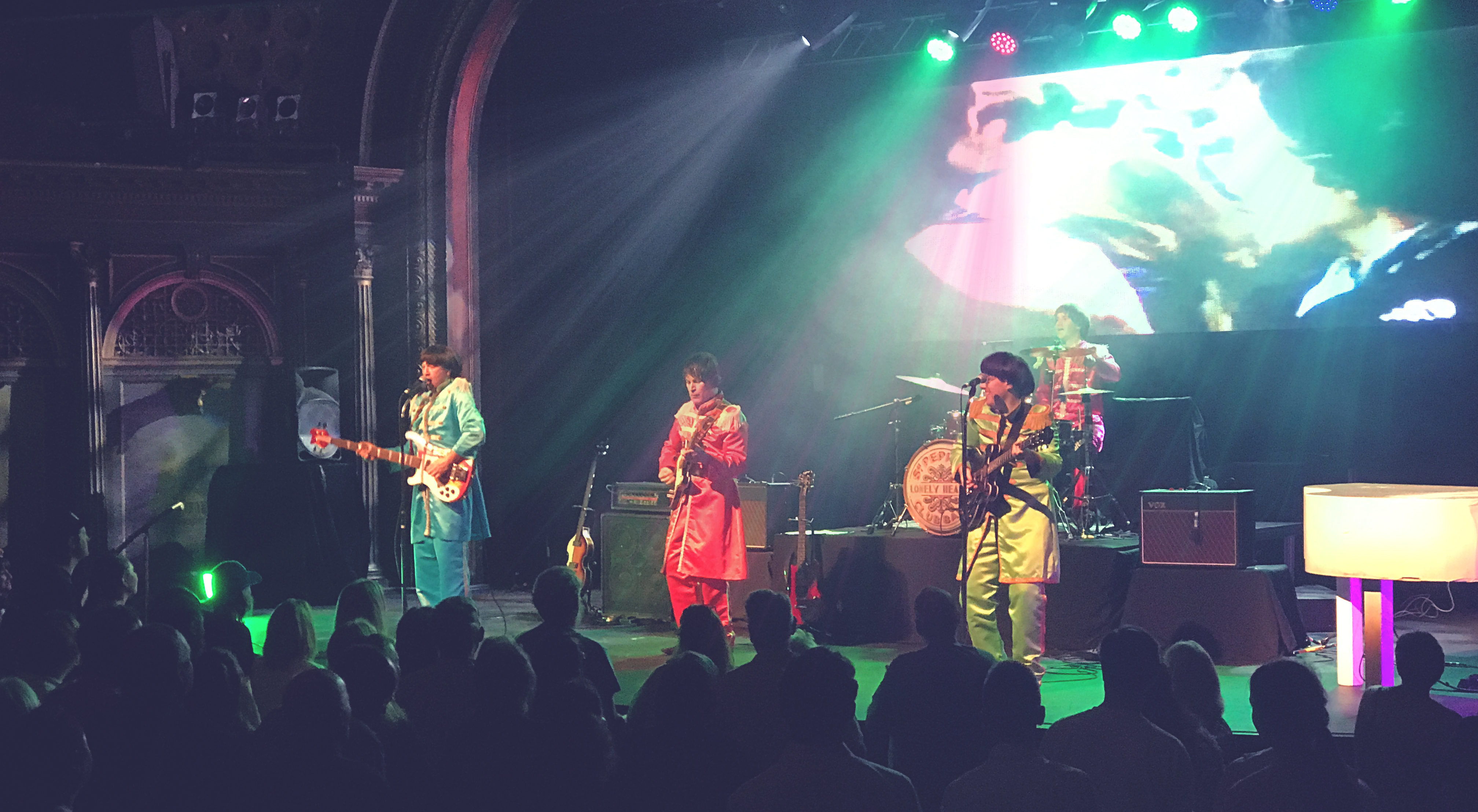INTERVIEW: BEATLEMANIA KEEPS THE BRITISH INVASION GOING STRONG!
Growing up, Cameron Charters wanted to be just like his older brother.
His brother listened to the Beatles, so Charters listened to the Beatles. And his older brother played the guitar so, naturally, Charters picked it up too.
Little did he know, his brother’s childhood influences would lead Charters to his current job as Paul McCartney in Beatlemania On Tour, which stops by the Bing Crosby Theater on Friday.
Charters, who has also performed in David Bowie and Queen tribute acts, became Paul McCartney after Showtime, the company that produced both tribute shows, developed a Beatles show with the quartet of performers playing Queen.
Charters has been with Beatlemania for the better part of a decade, and the current lineup of Charters, Zac Coombs (John Lennon), Brent McMullen (George Harrison) and Ben Harper (Ringo Starr) has been together for about three years.
“The Beatles was definitely one of the best ones to do, having such a huge catalog of great songs,” Charters said.
Getting his impression of McCartney just right involved watching a lot of videos to develop the musician’s accent, which was a bit of a challenge for the Australian.
Charters also taught himself to play bass left-handed to match McCartney’s style.
The hardest thing to master though was McCartney’s mannerisms, which Charters can now rattle off practically like they’re his own.
“He bops around. He usually has a grin on his face,” he said. “He moves around a lot. There’s a lot of head wobbles. When he hits a high note, he shakes his head in a certain way.”
In Beatlemania on Tour, Charters and the rest of the quartet take audiences on a journey from the Beatles’ beginnings in Hamburg and Liverpool, to performances on the BBC and “The Ed Sullivan Show” and at Shea Stadium and into the “Sgt. Pepper’s Lonely Hearts Club Band” era.
Beatlemania on Tour uses video screens to help establish each section of the band’s career, but the performers also go through several costume changes to set the scene.
Charters enjoys performing the Beatles’ early, upbeat work, but said it’s fun to play the bigger, orchestral arrangements as well.
“They’ve just got so many songs, it’s always hard to pinpoint favorites,” he said. “It’d be a long list.”
The Beatles’ vast catalog can also make deciding on a set list a challenge.
Certain songs, like “Get Back,” “Hey Jude” and “Twist and Shout,” are shoo-ins, but the rest of the set list can be changed from time to time.
“That’s one of the good things with the Beatles is you can do that,” Charters said. “You’d be struggling to get two hours for most bands. The Beatles could do probably at least two full shows.”
It’s this amount of music, and the quality of the music, that Charters said has kept the Beatles’ legacy alive long after the band broke up.
“They took the world by storm, and it was such a unique experience …” Charters said. “Their music has stood the test of time very well. They were obviously excellent songwriters. Everyone has a bit of a soft spot for the Beatles.”

